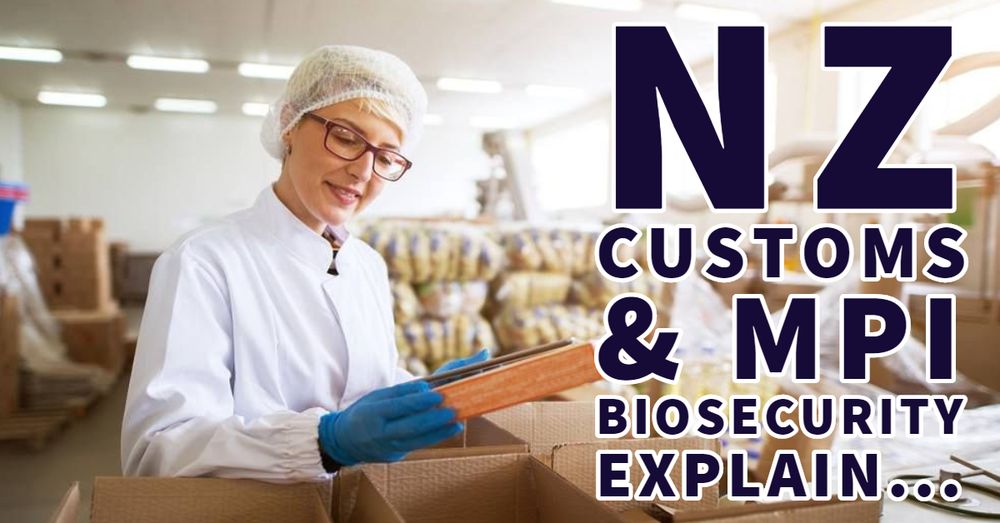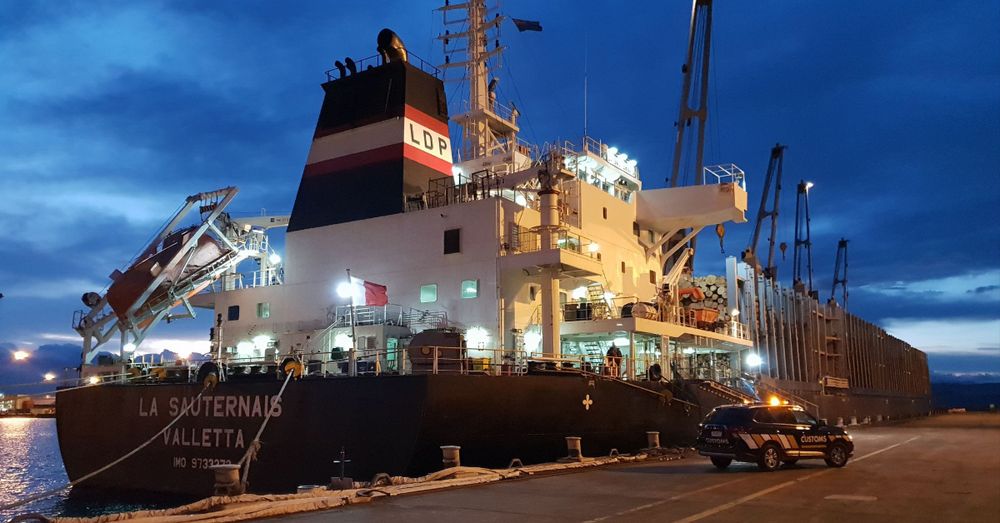
Import Delays to NZ Are Getting Worse (Is There a Solution?)
5-minute read
The Customs Brokers and Freight Forwarders Federation (‘CBAFF’) told Shipping Gazette™ it is actively working towards resolution of issues with MPI clearance delays.
Chris Edwards, vice president of CBAFF, said the Trade Single Window (TSW) issues are top of mind for the industry and no solution is yet in sight.
“I’m not blaming MPI, this is not a problem of their making,” said Mr Edwards.
‘The problem is, those resources – even with additional staff taken on in recent weeks – are not enough in the face of significant shipping volumes and heightened compliance requirements.
He says, become a “New Zealand Inc issue” because of the wider implications for the commerce of slowed cargoes. CBAFF has met with Customs and with MPI to discuss the issues. “Customs accepts there are challenges to using TSW,” said Mr Edwards.
“With no risk and intelligence component (R&I) in the Joint Border Management System (JBMS) it has not been possible to move from a manual-focused cargo risk assessment system.”
MPI RESPONSE
CBAFF’s views have drawn a response from the head of Biosecurity and chief operations officer at MPI, Roger Smith about biosecurity clearance delays at the border.
Mr Smith agrees there are delays in evaluating cargo for risk and providing clearance certificates. “This is simply because biosecurity is so important to New Zealand. If we are to protect New Zealand from harmful pests and diseases, we need to subject cargo to careful evaluation for risk.”
However, he adds, “the current delays are too long and need to be reduced.
“The good news is we have taken a number of steps to improve turnaround times, including bringing in additional staff and introducing better targeting of risk that reduces the level of processing required for low risk cargo.
“However, the game changer will be the introduction of a long awaited risk and intelligence (R&I) system. The system will improve workflows by prioritising goods that need clearance.
It will also automate many of the administration jobs carried out by Biosecurity New Zealand evaluators, speeding up the whole process and allowing a greater focus on what we want them to do evaluate biosecurity risk.”
Mr Smith says in the response provided to NZ Shipping Gazette™ that the R&I system was initially intended to be delivered along the TSW as part of the Joint Border Management System (JBMS) programme with NZ Customs.
“It was then decided the best way to get a fit-for-purpose tool was to develop it in house. The system will now start rolling out in December.”
For the record, he says, MPI do not see TSW as the cause of the clearance delays. “The reasons are largely related to unprecedented volumes of cargo and a heightened level of risk due to seasonal factors, such as the increased risk of stink bug.”
He reminds industry they can do their bit to help us process applications quicker by submitting applications as early as possible and ensuring Biosecurity New Zealand receives accurate and complete documentation.
“And please remember that we prioritise applications. Cats and dogs, germplasm, nursery stock, and perishable items must be cleared before other cargo.
“Ultimately, we want our processes to be as streamlined as possible. But we are never going to take our focus away from the need to protect New Zealand.”
The president of CBAFF, Glenn Coldham, will again be meeting with MPI next week.
CBAFF COMMENT
The challenges facing our industry at present have been addressed a number of times in this column in recent months. However, given it is top of mind for the industry and no solution is yet in sight, I’d like to look again at the escalating impacts this is having.
The problem is, those resources – even with additional staff taken on in recent weeks – are not enough in the face of significant shipping volumes and heightened compliance requirements.

Overall, from my experience and that of the many people I have spoken with, TSW is not working as it was intended to work because there are significant anomalies currently in the system. It appears to be no improvement on the system it replaced. It does not feel like a state-of-the-art electronic system – it feels like a manual one.
CBAFF has met with Customs and with MPI to discuss this. Customs accepts there are challenges to using TSW.
From our sector’s unique perspective, working at the coal face, we recognise the only answer will be for the Government to provide MPI with further additional resources and apply some “smarts” to the way all agencies operate through the TSW.
The systems at the border are not working efficiently, containers applications are not being processed in a timely fashion, that is starting to impact on businesses and the closer we get to Christmas, the worse those issues will become.
Currently, MPI clearances through TSW are typically taking four to five days or more to process.
For locations with a short transit such as Australia, that is leading to demurrage and detention issues for our clients. Once a backlog occurs in this sector, it is incredibly difficult to clear it. MPI can’t do anything about detention and demurrage charges.
Effectively, this means that many logistics companies are becoming the ‘bad news messengers’ on behalf of the Government. We find solutions around the world for our clients every day – but there’s nothing we can do to fix this problem right here on our doorstep.
We are having to tell our clients there are going to be delays, we have to tell them their containers have attracted additional charges.
We recognise MPI is in a very difficult position.
They are working with a system that does not appear to be functioning properly and that is leading to significant inconsistency of application of MPI rules.
There are some measures that could go some way to alleviate the situation a little. For instance, applying filters of criteria in order that non risk goods can pass through TSW quickly – currently there are significant delays even on products that do not have any risk involved.
More targeting, for instance on containers coming in from Australia on short transit times would be good.
However, with Christmas approaching, and 12 countries currently on the list for BMSB screening, the situation is going to escalate from severe to critical.
It’s hard to see how, in this day and age, a system of this sophistication requires more people to operate it, but that’s what’s needed right now is to get New Zealand’s supply chain working efficiently again – and to get that happening before the heavy Christmas load kicks in.
To do that, the Government must act fast and put further additional resources into MPI staffing.
Source: NZ Shipping Gazette
P.S. We’d love to answer any of your questions! Contact us now. Do you know of other people that will find this article useful? Please share it on social media. Thank you!
